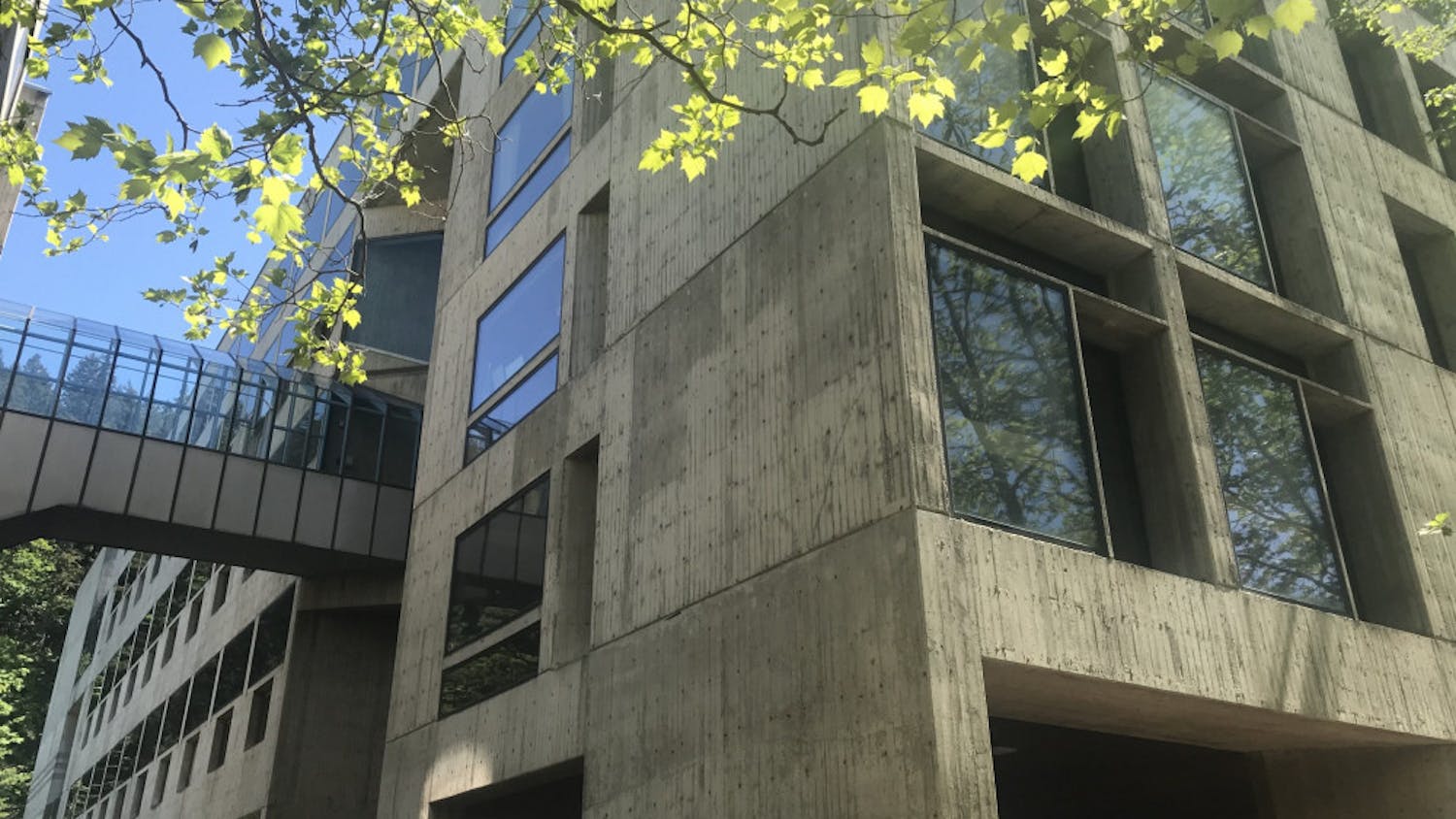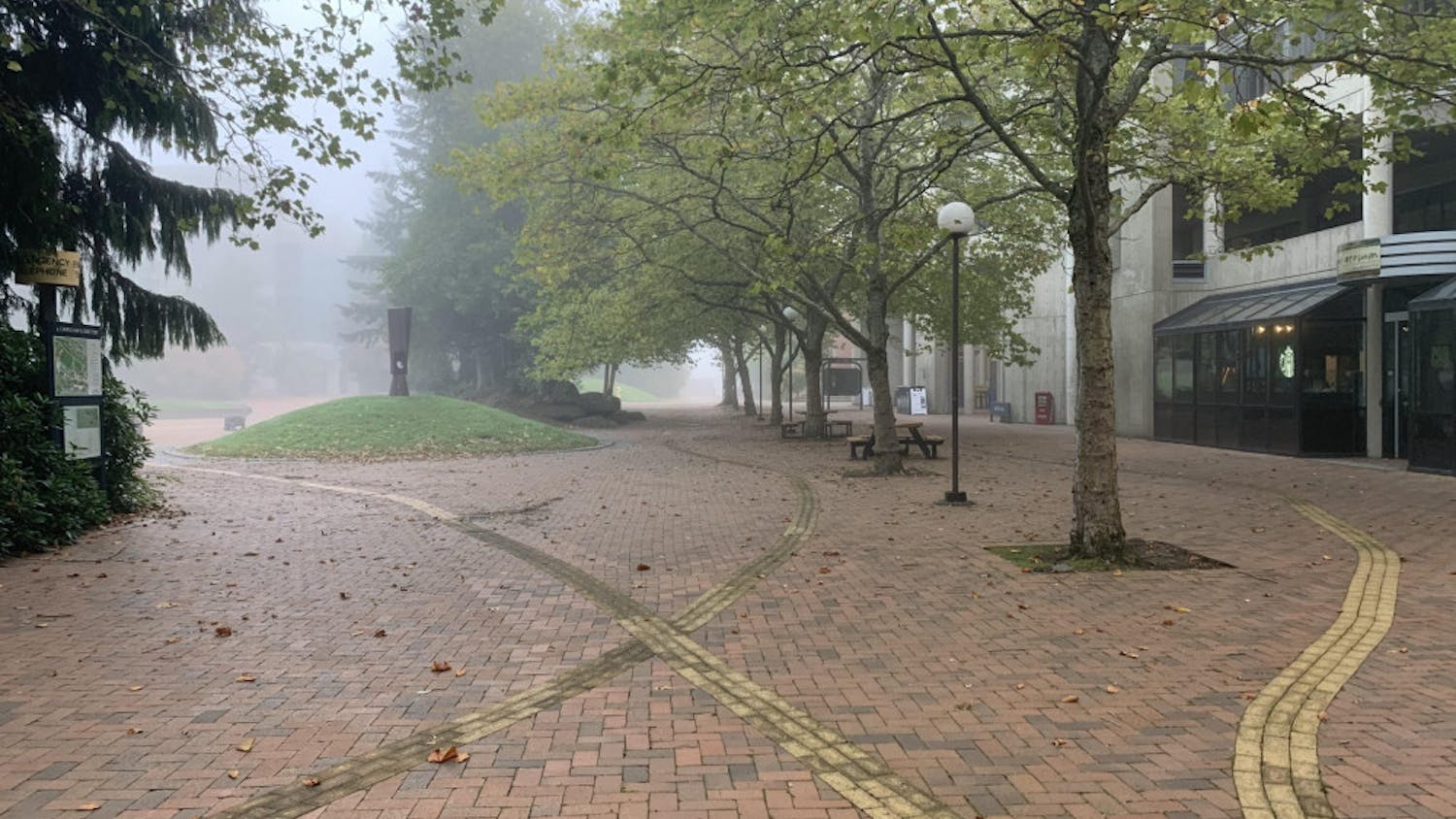
Grace Borsari and Fred Kaiser's philanthropic relationship with Western goes back several decades. The business partners have regularly donated money to the university for scholarships in athletics, engineering, diversity and women in materials and computer sciences. // Photo from Western Today.
Grace Borsari and Fred Kaiser — who donated $10 million to Western Washington University for a new STEM building with their names on it — have retained an attorney in an attempt to remove public records obtained and posted by The Front during an investigation into the donors’ history of tax evasion.
Borsari and Kaiser were forced to pay more than $36 million to the government in 2004 after admitting to cheating on their tax returns over eight years. In January 2020, after Western announced that a new STEM building would be named after the pair, The Front published an article detailing their history of tax evasion.
As part of the investigation, The Front uploaded a number of court documents to DocumentCloud, a website commonly used by journalists to upload and analyze documents. In February 2021, Michael Morisy, the head of DocumentCloud, received an email from a law firm representing Kaiser and Borsari asking to have the respective documents removed from the website as a “professional courtesy.” At the same time, the law firm Lambert Worldwide contacted The Front’s editor-in-chief and faculty adviser asking that the article be removed, de-indexed, or altered to remove Kaiser and Borsari’s names “as a professional courtesy.”
While the letters stated that they did not represent an intent to take legal action, they said that Kaiser and Borsari believe “several facts were reported without necessary context and/or that some details conveyed in this article are wholly incorrect.” The letters, which were signed by John Lambert, the managing director of Lambert Worldwide, did not specify which parts they believed to be incorrect, but offered to disclose the details only under an agreement that the discussion would be off the record.
“We are, of course, interested in producing complete, fair and factually accurate stories,” winter editor-in-chief Izzie Lund said in an email reply to the attorney on the same day that his email was sent. “Although we are confident in Erasmus Baxter's reporting, we would appreciate the opportunity to review any concerns.
“It is the Front's policy to correct errors of fact. It is also the Front's policy not to remove, deindex, or redact our factually accurate reporting from our website.”
Lambert could not be reached for comment on this story and his law firm did not reply to Lund’s message.
Erasmus Baxter, a Western alumnus who works as a reporter with The Phoenix New Times, broke The Front’s story about Borsari and Kaiser’s tax fraud in January 2020. Baxter stands by his reporting.
“I made a good faith effort to try and include everything I could,” Baxter said, adding that it was difficult to write the story as he was not able to reach Kaiser and Borsari, despite contacting them multiple times as part of an extensive reporting process.
“I read through the court documents; I included the information that their [Kaiser and Borsari’s] lawyers presented as well,” Baxter said.
Frank LoMonte, a lawyer, journalist and press freedom advocate, and director of the Brechner Center for Freedom of Information at the University of Florida, said this sort of request has become more common in recent years. LoMonte noted that the permanence of the Internet and Google’s search engine provide access to articles that would previously fade away.
LoMonte said past misconduct typically falls into one of two categories.
“Either something is really insignificant and it will go away by itself sooner or later, or it’s really significant and it shouldn’t go away,” LoMonte said.
LoMonte went on to point out that if an article is factually accurate, it is not grounds for a lawsuit because it bothers someone, possibly years later.
“Our client simply wishes to put this incident behind them and move on with their lives. While it is important that information be archived, surely one must not be punished in perpetuity?” Lambert wrote in the letter sent to Morisy at DocumentCloud.
Morisy said that he has no intention of removing the documents.
“Our policy is whenever possible to defer to the newsroom in question,” Morisy said. He added that the original story is an example of great reporting and the power of access to public documents. Morisy is also the co-founder of MuckRock, which helps people access and share public records held by governments and other public agencies, and a former fellow at the Edmond J. Safra Center for Ethics Network Fellow at Harvard University.
“If people have genuine concerns, I encourage people to write to us,” Morisy said. “I’m happy to facilitate conversations.”
Baxter’s article, which was picked up by The Associated Press, was largely based on court documents that are part of the public record and accessible to anyone who requests them.
“I think it’s an underhanded way to go about things,” Baxter said of the letter.
As Lund, the winter editor in chief, noted, the student newsroom has policies in place: “The Front does not remove content from its website after publication except in cases of severe ethical violations, such as if the story is found to be fabricated,” according to The Front’s policy handbook, which is reviewed frequently by both student editors and legal advisers at the Student Press Law Center. “Rather, stories with factual errors or needed clarifications will be corrected with a notice at the top detailing when the story was updated with corrections.
“This policy is in place to avoid setting a precedent in which anyone who does not like something that was published can simply ask to have it taken down. The Front does not change history. If editors thought it was newsworthy enough to run in the paper or online, its value remains.”
Caroline Brooks is a journalism student and a reporter for The Front. Her work includes local features and Bellingham-based news.





